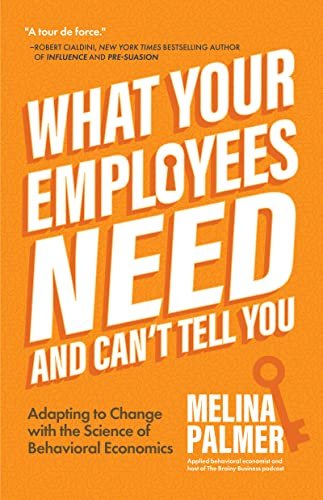What Your Employees Need and Can't Tell You: Adapting to Change with the Science of Behavioral Economics
💡 Disclaimer: I am a huge fanboy of Melina’s work. Her podcast and community are extremely valuable to me in helping companies, and people navigate tech changes.
This is a great book for anyone that has to help people navigate change. There are several books on change management and behavioral economics but Melina boils down the concepts and turns them into simple, actionable approaches that can help you and your company, TODAY.
Some (I have so many highlights I just can put them all here) from my kindle highlights;
“If you only consider change as the big, massive projects where you send out impersonal communication and expect people to jump on board quickly, you ignore millions of habitual micro-decisions. Are they building into a snowball that will support change when it comes? Or piling up into an iceberg of habit-driven indifference that will stand between you and the change you seek?”
“If you want to cultivate the ability to not simply survive but also thrive amid change, you better work with the human mind—not against it.”
“we may like to believe that we are better with this pressure, it simply isn’t true. You may make quick decisions (because you must), but they aren’t necessarily the best or most strategic. They are likely decisions to help your brain feel safe in the status quo it loves so much.”
“Overwhelmed Brains Remain Stuck in the Past How easily do our brains get overwhelmed? It takes a lot less than you think. A study in the Journal of Consumer Research found that remembering a few extra digits can impact decision-making.”
“Because we are a herding species, we are more likely to look for social proof to guide our decisions (especially in times of uncertainty). We instinctively look to the majority of others like us to determine how we feel about new situations. This is why five-star reviews make us feel comfortable buying from a company we have never done business with, and labeling items as “most popular” will increase how many people choose them… Studies show that up to 75 percent of participants will give an answer they know is wrong to go with the group. Three out of four!”
“That’s time discounting at work (or as I like to call it, the “I’ll start Monday” effect). Studies have shown that the brain sees our future self (whom you are committing to get up at five o’clock to run) as a completely different person.78 It’s easy to commit Future You, but when Real You faces the harsh reality of the alarm, it is easier to hit snooze (making it Future You’s problem again).”
Here is the LINK to the AMAZON Book


